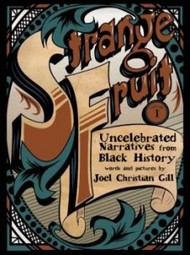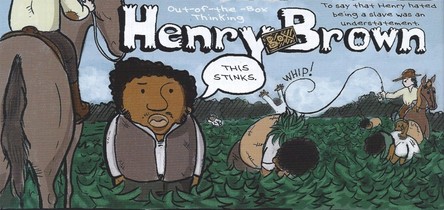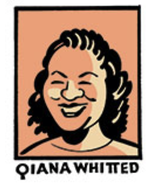|
Originally posted at The Hooded Utilitarian.  My copy of Joel Christian Gill’s new graphic novel arrived in the mail last week shortly after I read Frank Bramlett’s post on the way editorial comics depict Michael Sam, the openly gay, black football player who was recently drafted by the NFL’s St. Louis Rams. Of particular interest to Frank was how few of the comics he found rely on metaphor to convey meaning and instead invoke more literal representations of Sam to comment upon the significance (or insignificance) of his social identity. As the post makes clear, scrutinizing the visual and verbal shorthand that comics use to illustrate abstract ideas like race or sexual orientation can reveal a great deal about how society negotiates changing attitudes, institutions, and avenues of power. Gill’s collection, Strange Fruit: Uncelebrated Narrative from Black History, provides us with another opportunity to raise questions about the figurative modes of expression that today’s comics creators use to represent race and racism. Readers of the short stories in Strange Fruit quickly learn to appreciate the playful succinctness of Gill’s iconographic language. He knows when to use humor and sight gags to advance the story. (On the experience of enslavement, Henry “Box” Brown remarks: “This stinks.”) But Gill knows when more serious cultural cues are needed too, as in the two-page spread where Brown’s body, shown curled inside a wooden box, silently tumbles from slavery to freedom. |
AboutAn archive of my online writing on comics, literature, and culture. (Illustration above by Seth!) Categories
All
Archives
July 2020
|


 RSS Feed
RSS Feed